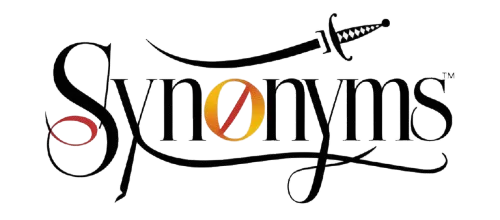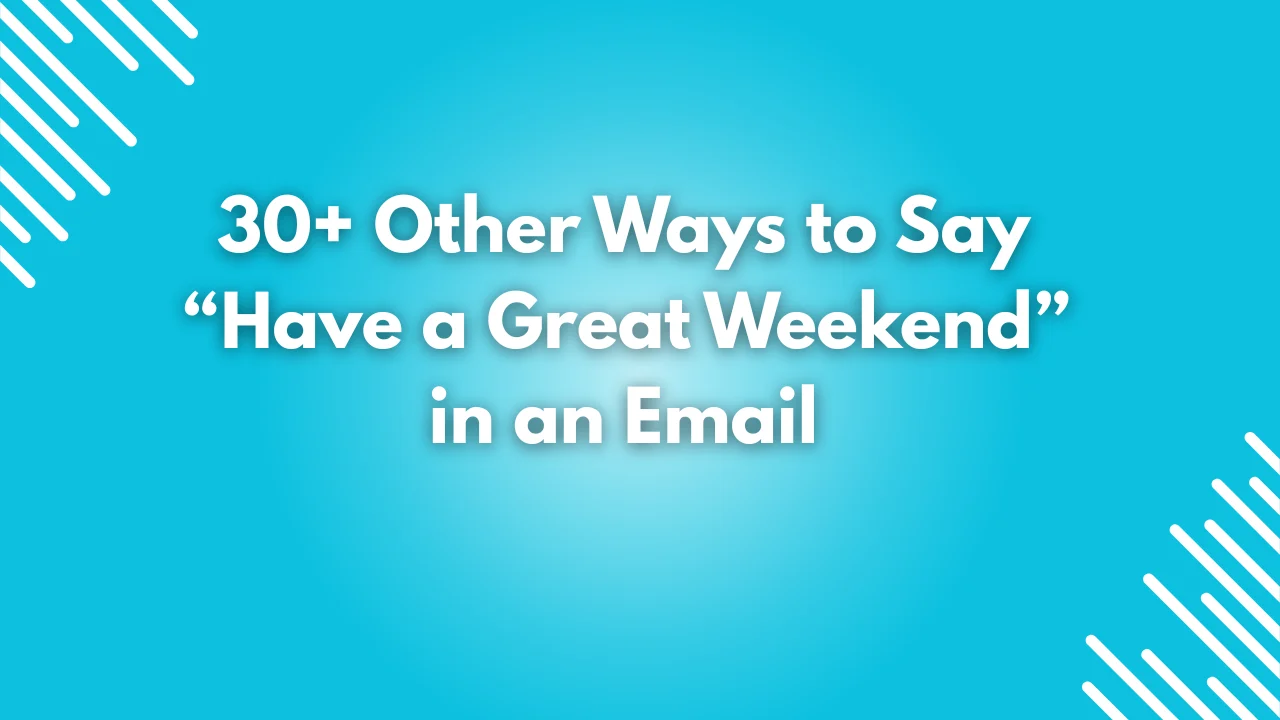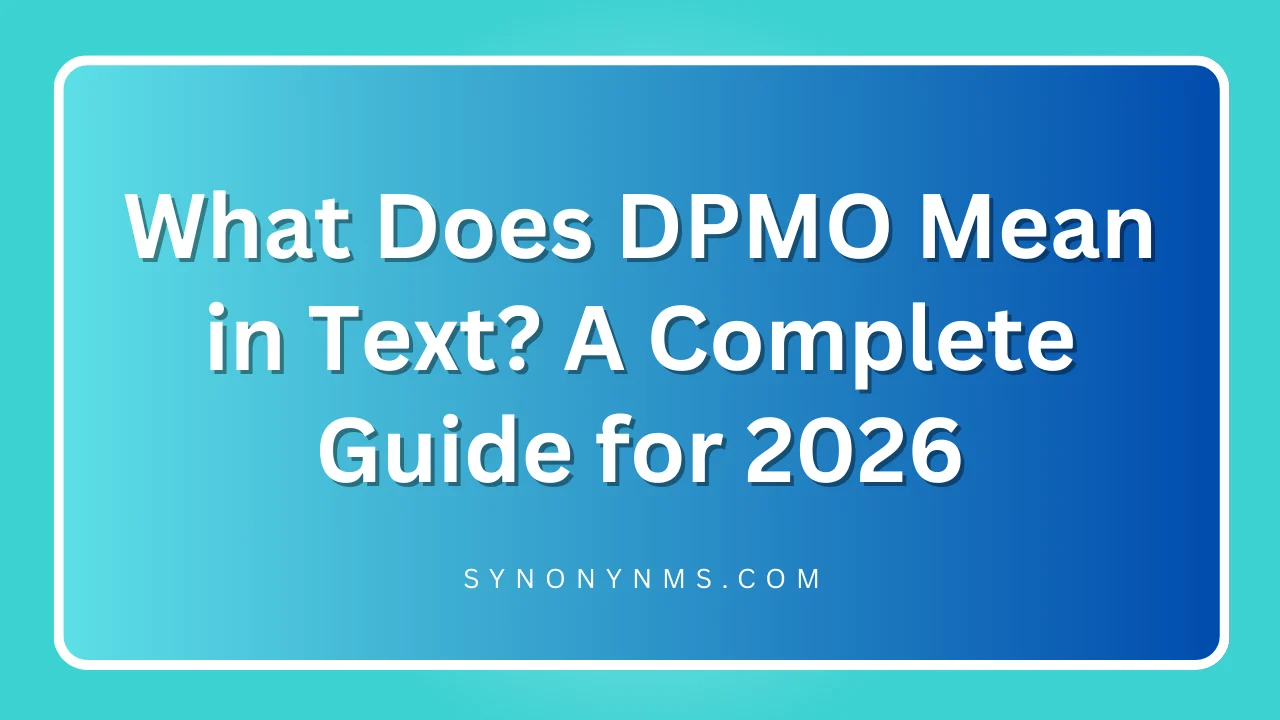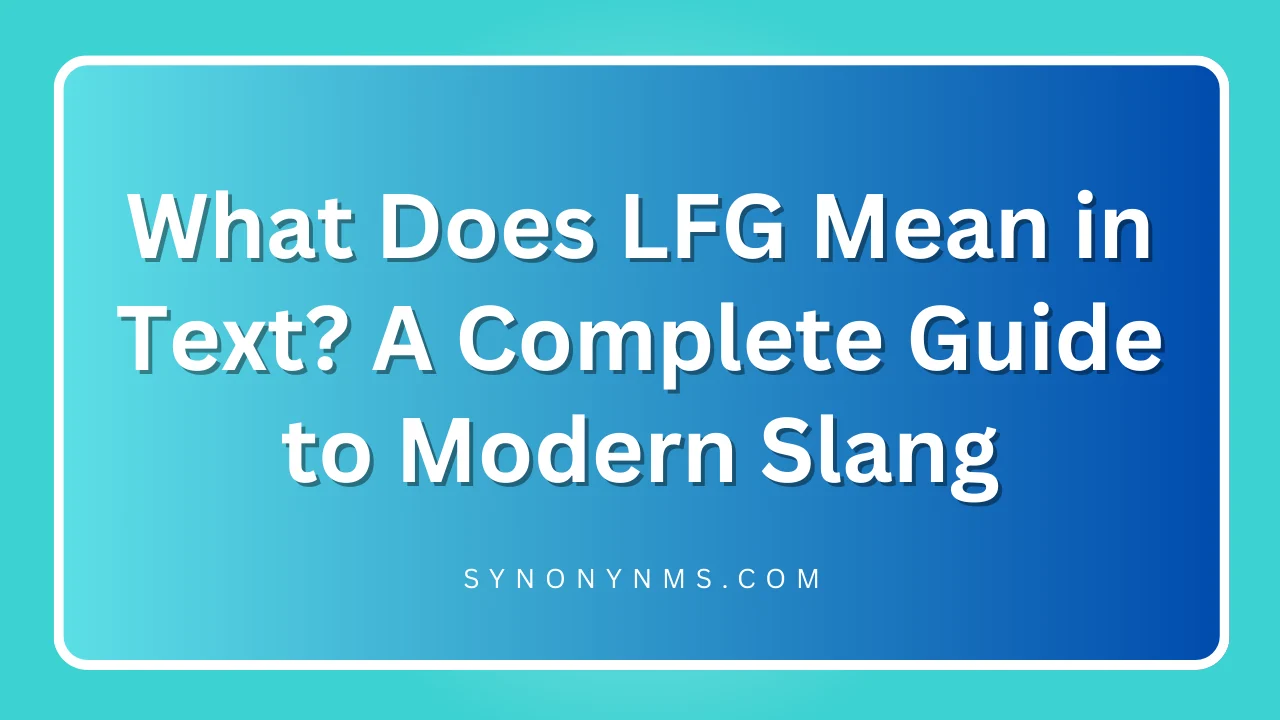Ending your email with “Have a great weekend” is a thoughtful way to show friendliness and warmth — especially as the workweek wraps up. It adds a personal touch to business communication, reminding others that you value them beyond the task or conversation at hand.
However, when you use the same closing line in every Friday email, it can start to sound routine or impersonal. By using creative and professional alternatives, you can keep your messages fresh, genuine, and aligned with your tone — whether you’re writing to a manager, client, or colleague.
In this article, you’ll find 30+ polished and versatile ways to say “Have a great weekend” in emails. Each alternative includes meaning, tone, and examples — helping you end your messages with warmth, personality, and professionalism.
What Does “Have a Great Weekend” Mean?
The phrase “Have a great weekend” is a friendly, informal way to wish someone well before the weekend begins. It expresses positivity, appreciation, and care — a subtle way to build rapport and human connection in professional correspondence.
Example:
Have a great weekend! Looking forward to catching up next week.
Tone-wise, it’s friendly and conversational, making it appropriate for most workplace emails, especially toward the end of the week.
When to Use It
You can use “Have a great weekend” in emails when:
- It’s Friday or the end of the week, and you want to close warmly.
- You’re signing off after a meeting, update, or follow-up message.
- You want to maintain professionalism while adding a touch of friendliness.
Examples:
- Thanks for your help today. Have a great weekend!
- Hope the presentation goes well — have a great weekend ahead!
It’s suitable for team communication, client messages, and business relationships where you want to leave a positive final impression.
Is It Polite or Professional?
Yes — “Have a great weekend” is both polite and professional. It’s an easy way to end on a kind note while maintaining a professional tone.
Still, to avoid sounding repetitive or overly casual, you can use variations that fit different moods — from formal and polished to warm and personal. Below are 30+ creative options you can use in your next Friday email.
30+ Other Ways to Say “Have a Great Weekend” in an Email
Each phrase below includes its meaning, tone, example, and usage tip — so you can choose the perfect one for any professional situation.
🔹 Formal & Polished Alternatives
- Wishing You a Wonderful Weekend
Meaning: A refined and polite version of the phrase.
Example: Wishing you a wonderful weekend ahead!
Use: Excellent for client and executive emails.
- Hope You Enjoy a Well-Deserved Break
Meaning: Recognizes effort and encourages rest.
Example: Hope you enjoy a well-deserved break after a busy week.
Use: Great for colleagues or teams finishing major projects.
- Enjoy Your Weekend Ahead
Meaning: Simple, clear, and courteous.
Example: Enjoy your weekend ahead — speak soon.
Use: Neutral and suitable for any business context.
- Have a Restful and Refreshing Weekend
Meaning: Emphasizes relaxation and well-being.
Example: Have a restful and refreshing weekend after such a productive week.
Use: Perfect for polite, considerate closings.
- Hope You Have a Pleasant Weekend
Meaning: Slightly formal, soft, and courteous.
Example: Hope you have a pleasant weekend with your family.
Use: Works well in client or vendor communication.
- Wishing You a Relaxing End to the Week
Meaning: Focuses on rest and balance.
Example: Wishing you a relaxing end to the week and a productive Monday ahead.
Use: Great for professional but empathetic tone.
- Have a Safe and Enjoyable Weekend
Meaning: Thoughtful and genuine.
Example: Have a safe and enjoyable weekend — see you next week.
Use: Common in formal but friendly exchanges.
- Hope You Get Some Time to Recharge
Meaning: Emphasizes wellness and rest.
Example: Hope you get some time to recharge over the weekend!
Use: Ideal for team or manager communication.
- Enjoy a Peaceful Weekend
Meaning: Warm yet refined.
Example: Enjoy a peaceful weekend after this busy schedule.
Use: Suitable for professional farewells or email sign-offs.
- Wishing You Quality Time This Weekend
Meaning: Focuses on personal well-being and balance.
Example: Wishing you quality time this weekend with loved ones.
Use: A kind, human-centered closing line.
🔹 Professional & Neutral Alternatives
- Hope You Have a Good Weekend
Meaning: A versatile, everyday phrase.
Example: Hope you have a good weekend — we’ll touch base Monday.
Use: Works well for internal emails.
- Enjoy the Weekend Ahead
Meaning: Friendly and polished.
Example: Enjoy the weekend ahead — talk soon.
Use: Balanced tone for clients or coworkers.
- Hope You Get Some Time to Unwind
Meaning: Encourages relaxation after work.
Example: Hope you get some time to unwind and recharge this weekend.
Use: Empathetic and appropriate for team messages.
- Have a Wonderful Weekend with Family and Friends
Meaning: Personal yet respectful.
Example: Have a wonderful weekend with family and friends — you’ve earned it!
Use: Great for internal communication.
- Hope You Have a Restful Few Days Off
Meaning: A polished way to express rest and well-being.
Example: Hope you have a restful few days off — see you next week!
Use: Works when addressing superiors or clients.
- Enjoy the Days Ahead
Meaning: Slightly abstract but warm.
Example: Enjoy the days ahead — we’ll reconnect on Monday.
Use: Excellent for versatile closings.
- Have a Rejuvenating Weekend
Meaning: Suggests renewal and energy.
Example: Have a rejuvenating weekend before the next busy week begins.
Use: Suitable for wellness-oriented workplaces.
- Enjoy Some Well-Earned Rest
Meaning: Praises effort and suggests taking a break.
Example: Enjoy some well-earned rest — you’ve had a productive week.
Use: Encouraging and kind tone.
- Take Care and Enjoy the Weekend
Meaning: Combines care and friendliness.
Example: Take care and enjoy the weekend with your loved ones.
Use: Great blend of professional and personal warmth.
- Have a Fantastic Weekend Ahead
Meaning: Energetic and upbeat.
Example: Have a fantastic weekend ahead — talk to you soon.
Use: Confident tone for positive work relationships.
🔹 Friendly & Conversational Alternatives
- Enjoy Your Weekend!
Meaning: Classic, cheerful sign-off.
Example: Enjoy your weekend! Looking forward to next week’s progress.
Use: Perfect for teammates or casual contacts.
- Have an Amazing Weekend!
Meaning: Positive and enthusiastic.
Example: Have an amazing weekend — you deserve it!
Use: Great for energizing, upbeat teams.
- Hope Your Weekend’s Off to a Great Start
Meaning: A friendly mid-Friday message.
Example: Hope your weekend’s off to a great start already!
Use: Lighthearted tone for colleagues.
- Enjoy Some Time Off
Meaning: Encourages rest and personal time.
Example: Enjoy some time off and recharge for the week ahead.
Use: Friendly, caring message.
- Have a Fun and Relaxing Weekend
Meaning: Blends cheer and sincerity.
Example: Have a fun and relaxing weekend — you’ve earned it!
Use: Perfect for casual yet respectful tone.
- Take It Easy This Weekend
Meaning: Encourages slowing down and resting.
Example: Take it easy this weekend — see you Monday!
Use: Ideal for internal messages or friendly colleagues.
- Hope You Make the Most of Your Weekend
Meaning: Encourages fulfillment and enjoyment.
Example: Hope you make the most of your weekend — enjoy every moment!
Use: Polite and motivating.
- Enjoy Your Days Off — You Deserve It
Meaning: Recognizes effort and invites rest.
Example: Enjoy your days off — you deserve it after this week!
Use: Friendly and affirming.
- Have a Great One!
Meaning: Short, cheerful, and casual.
Example: Have a great one! Catch up next week.
Use: Great for chatty, friendly exchanges.
- Hope You Have a Wonderful Few Days Ahead
Meaning: Elegant and positive.
Example: Hope you have a wonderful few days ahead — best wishes!
Use: Flexible and polished for mixed audiences.
Conclusion
“Have a great weekend” remains a warm and professional sign-off, but small variations can make your messages feel more authentic and intentional. Whether you’re emailing a client, a colleague, or your manager, using these 30+ polished alternatives helps you tailor your tone — formal, friendly, or caring — while keeping your communication fresh.
A thoughtful closing doesn’t just end an email — it strengthens your connection and leaves a lasting positive impression.



